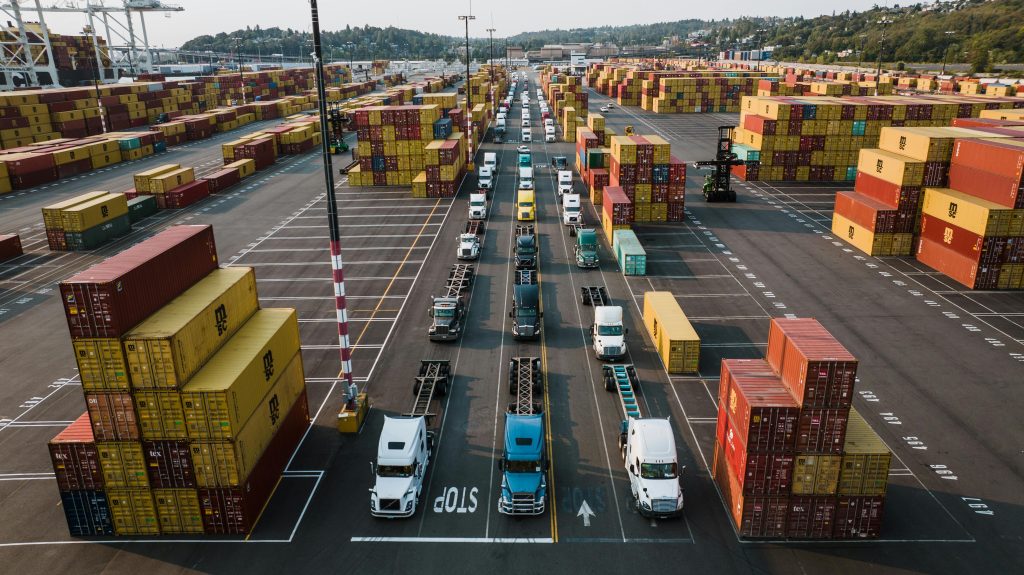4PL Logistics: Revolutionizing Supply Chain Management

What is 4PL (Fourth Party Logistics)?
4PL, short for Fourth Party Logistics, refers to the practice of outsourcing the entire management of a company’s supply chain and logistics operations to a single provider. This provider, known as a company, acts as a central point of contact, overseeing and coordinating various aspects of the supply chain, including transportation, warehousing, distribution, and even other third-party logistics (3PL) providers.
The Evolution of Logistics Outsourcing
To understand , it’s essential to look at the evolution of logistics outsourcing:
- 1PL (First Party Logistics): In-house logistics management
- 2PL (Second Party Logistics): Outsourcing of transportation and/or warehousing
- 3PL (Third Party Logistics): Outsourcing of multiple logistics functions
- 4PL (Fourth Party Logistics): Outsourcing of entire supply chain management
4PL vs. 3PL: Understanding the Difference
While both 3PL and 4PL involve outsourcing logistics functions, there are key differences:
3PL (Third Party Logistics):
- Focuses on specific logistics functions (e.g., transportation, warehousing)
- Typically asset-based (owns trucks, warehouses, etc.)
- Operates within a defined scope of services
4PL (Fourth Party Logistics):
- Manages the entire supply chain
- Often asset-light, focusing on strategy and coordination
- Oversees multiple 3PLs and other service providers
- Provides end-to-end supply chain visibility and optimization

Key Components of 4PL Solutions
4PL solutions typically encompass:
- Supply chain strategy and design
- Logistics network optimization
- Transportation management
- Warehouse management
- Inventory optimization
- Technology integration and data analytics
- Continuous improvement and innovation
Benefits of 4PL Logistics
Implementing a model can offer numerous advantages:
- Streamlined operations and reduced complexity
- Cost savings through economies of scale and optimization
- Enhanced visibility across the entire supply chain
- Access to specialized expertise and best practices
- Flexibility to adapt to changing market conditions
- Focus on core business activities
4PL in the Supply Chain
4PL providers play a crucial role in modern supply chains by:
- Coordinating multiple stakeholders and service providers
- Leveraging technology for real-time visibility and decision-making
- Optimizing inventory levels and distribution networks
- Managing risk and ensuring compliance across the supply chain
- Driving innovation and continuous improvement
Examples of 4PL Logistics in Action
Some real-world examples of 4PL logistics include:
- A global electronics manufacturer outsourcing its entire logistics operation to a 4PL provider, who manages transportation, warehousing, and distribution across multiple countries.
- A retail chain using a 4PL to optimize its omnichannel supply chain, integrating e-commerce fulfillment with traditional brick-and-mortar distribution.
- An automotive company leveraging a 4PL to manage its complex global supply network, including just-in-time inventory management and supplier coordination.

Choosing a 4PL Logistics Provider
When selecting a company, consider the following factors:
- Industry expertise and experience
- Technological capabilities and innovation
- Global reach and network
- Flexibility and scalability of solutions
- Track record of successful implementations
- Cultural fit and alignment with your business goals
The Future of 4PL Logistics
As supply chains become increasingly complex and global, the role of providers is expected to grow. Future trends in logistics include:
- Increased use of artificial intelligence and machine learning for predictive analytics
- Integration of Internet of Things (IoT) devices for real-time tracking and monitoring
- Blockchain technology for enhanced security and transparency
- Sustainable and green supply chain initiatives
- Greater focus on risk management and resilience
Conclusion
4PL logistics represents a significant evolution in supply chain management, offering businesses a comprehensive solution to navigate the complexities of modern logistics. By partnering with a provider, companies can streamline their operations, reduce costs, and gain a competitive edge in today’s fast-paced global marketplace.
As you consider implementing a 4PL solution for your business, it’s crucial to choose the right technology partner to support your logistics operations. Linbis offers a comprehensive suite of logistics software solutions that can integrate seamlessly with providers, enhancing visibility, automation, and efficiency across your entire supply chain. Whether you’re a provider looking to optimize your operations or a business seeking to leverage services, Linbis
